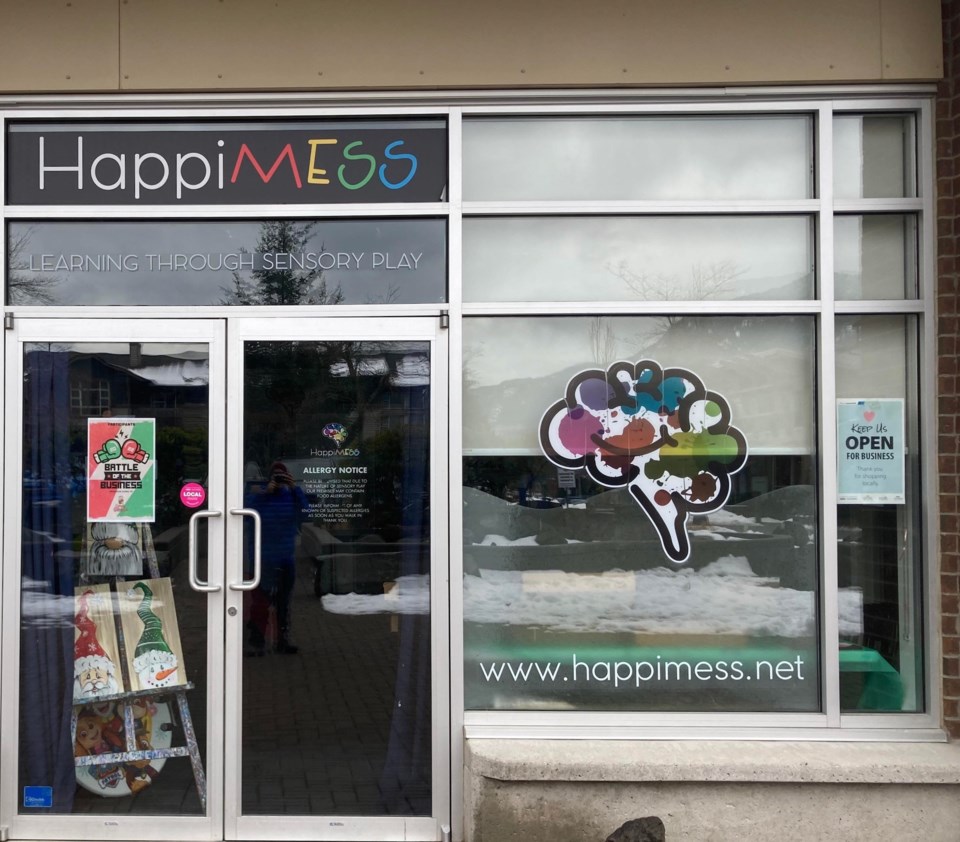A Squamish business known for giving children hands-on sensory art and play experiences has won a dispute over a temporary use permit application.
On Dec. 6, council voted 6-1 in favour of issuing a three-year temporary use permit for 120 – 39455 Discovery Way, where the business plans on becoming a tenant. This occurred after District staff denied the application back in October, saying that the business did not conform to the appropriate zoning in the area.
After this denial, the owners of the enterprise, Marcus Monopoli and Dalia Shehata, appeared before elected officials to appeal their case.
"The most contention I think we're going to deal with is whether the contested elements in the application fit within the definition of indoor recreation," said Gary Buxton, general manager of community planning and infrastructure.
"Staff's decision is that it does not. The application contests that the elements do."
A staff report said that providing recreational art activities and sensory play would fall under assembly use, which is the gathering of people for religious, charitable, philanthropic, cultural, recreational, or educational purposes. This is not a permitted use in the I-8 zone where it would reside.
However, Monopoli and Shehata, when speaking before council, said the nature of their business has changed.
Monopoli said they want to expand their enterprise into manufacturing.
"We want to create at-home art kits and crafts like an online subscription service type business model. We did this during the pandemic, and it's how our business survived," he said.
They're looking to move into the business park to capitalize on that idea and have it become their main source of revenue, Monopoli said. Their business would be industrial, with play and arts being an accessory use.
There was also discussion about how light industrial zoning in the area also allows for indoor recreational use. For instance, a trampoline gym and a climbing gym reside in the area.
Monopoli argued the District may be interpreting recreation narrowly as a physical activity.
"If you just make indoor recreation a strictly physical activity, that is unconsciously ableist," he said.
Most on council sympathized with the owners of Happimess.
"Wording is very important, definitions are very important, and we've found ourselves in a situation where our business park has become quite grey," said Coun. John French.
"The one hurdle that I'm having the most difficulty getting over is the dance studios that we've allowed to exist in our I-11 zone, which is very similar to the I-8 zone. I can't justify allowing the dancing studios to continue to do what they do, which have very similar parking challenges as the applicant is bumping up against. It's all cultural. It's all recreational."
Coun. Andrew Hamilton, who also supported the motion, said that the definition of indoor recreation was not fully fleshed out in the bylaw.
"Maybe the original intent of those words was to mean something physical, [but] that's not what they say, so on balance, I'll speak in support of the appeal, because the words that we've used for indoor recreation do not exclude art," Hamilton said.
Coun. Eric Andersen was against the appeal from Happimess.
He said the permit would last three years. While some on council suggested that would give the business time to fit within the zoning bylaw, he said that time would be better spent on implementing solutions from the Arts, Culture and Heritage Strategy, which would apply to an enterprise like Happimess.
"We need to devote attention to the action items in that strategy," Andersen said. "We really need to get serious about planning for facilities for these cultural type activities."






